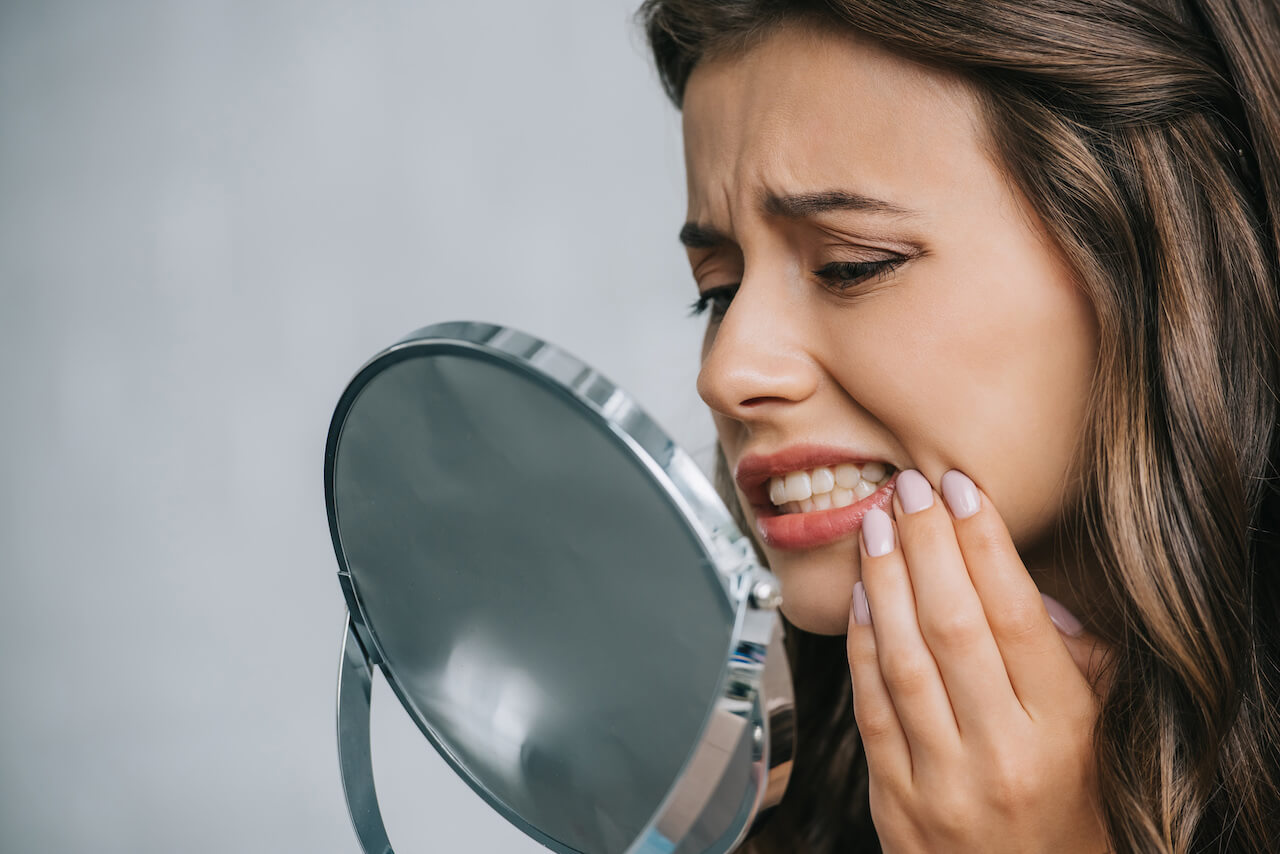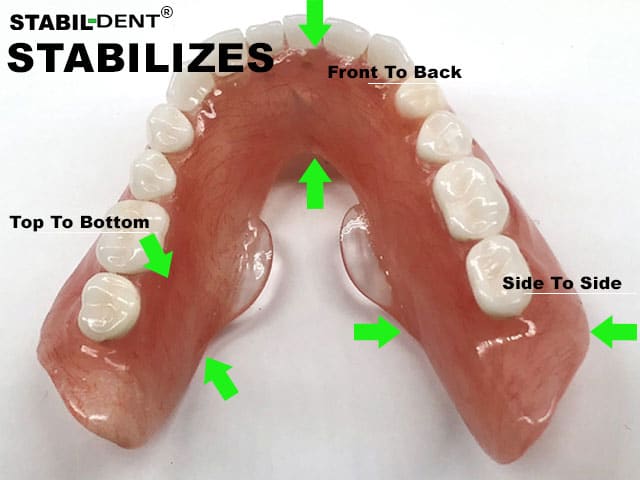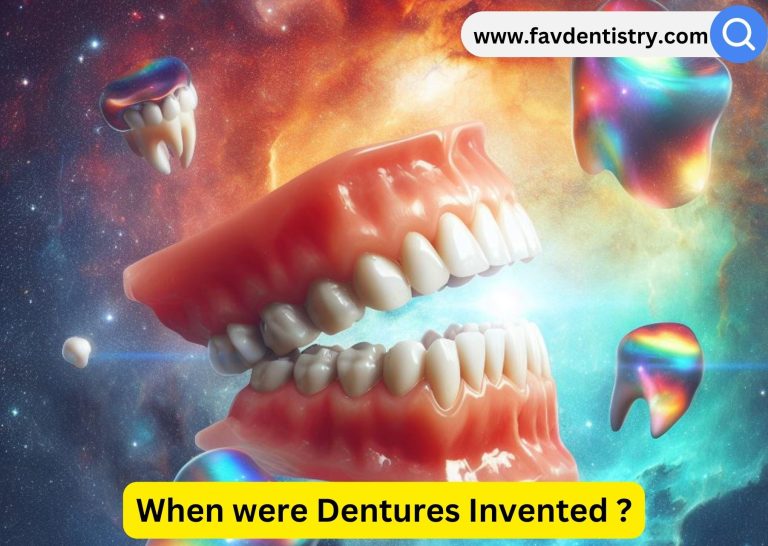Last Updated on 3 weeks by DR. ALBIN SIPES
Glue can indeed damage your teeth due to its strong adhesive properties that can cause enamel erosion and tooth decay. When glue comes into contact with your teeth, it can weaken the protective enamel layer, making them more susceptible to damage and cavities.
In addition, inhaling certain types of glue, such as super glue, can also be harmful to your oral health and overall well-being. Therefore, it is crucial to avoid using glue as a makeshift dental solution and instead seek professional dental treatment if you have any concerns or issues with your teeth.
Taking proper care of your oral hygiene and consulting with a dentist are key to maintaining healthy teeth and a beautiful smile.
Understanding Dental Adhesive: What Is It And How Does It Work?
Dental adhesive, commonly known as dental glue, plays a crucial role in various dental procedures. Whether you’re getting dentures, implants, or orthodontic brackets, dental adhesive helps ensure that these appliances adhere firmly to your teeth. Understanding how dental adhesives work and their components can help you make informed decisions about your oral health.
In this section, we will delve into the definition of dental adhesive, its purpose, and its components.
Definition Of Dental Adhesive
Dental adhesive, also referred to as dental glue or dental cement, is a dental material used to secure various dental prosthetics and appliances onto the teeth. It is a type of dental cement that provides a strong bond between the natural tooth structure and the dental appliance, ensuring stability and functionality.
Purpose Of Dental Adhesive
The primary purpose of dental adhesive is to enhance the retention and stability of dental prosthetics and appliances. It serves as a bonding agent between the natural tooth surface and the artificial dental appliance, preventing slippage or movement. Dental adhesive also helps seal the gaps between the dental appliance and the tooth, reducing the risk of food particles getting trapped and causing discomfort or dental decay.
The Components Of Dental Adhesive
Dental adhesives consist of various components that work together to create a strong bond between the natural tooth structure and the dental appliance. These components typically include:
- Resin: The adhesive resin is the main component responsible for bonding the dental appliance to the tooth surface. It is a synthetic material that forms a strong adhesive bond when it comes in contact with the tooth structure.
- Initiator and activator: These components trigger the chemical reaction that causes the adhesive resin to harden and form a secure bond. The initiator and activator may be light-activated or self-curing, depending on the type of dental adhesive.
- Filler particles: Dental adhesives often contain filler particles to increase their strength and mechanical properties. These particles may be made of glass, quartz, or other materials, enhancing the adhesive’s resistance to wear and tear.
Dental adhesive plays a vital role in ensuring the stability and functionality of various dental prosthetics and appliances. By understanding the definition, purpose, and components of dental adhesive, you can make informed decisions about your oral health and have a better understanding of how these materials contribute to your dental well-being.
Types Of Dental Adhesive: Which Ones Are Safe For Your Teeth?
Have you ever wondered if using dental adhesive or glue can damage your teeth? It’s a valid concern, as many people rely on these products to secure their dentures or fillings in place. In this blog post, we will delve into the topic and explore the different types of dental adhesives available.
By the end, you’ll have a clear understanding of which ones are safe for your teeth and which ones you should avoid. So let’s get started!
Overview Of Traditional Dental Adhesive
- Traditional dental adhesive, often referred to as denture glue, has been used for many years to fix loose dentures in place.
- These adhesives usually come in the form of creams, powders, or strips that are applied to the dentures before inserting them into the mouth.
- The adhesive forms a bond between the dentures and gums, providing stability and preventing slippage.
- However, some traditional dental adhesives contain zinc, which can be harmful if ingested in large amounts.
- Continuous use of adhesives with high zinc content can lead to zinc poisoning and adverse health effects.
Introduction To Newer Alternatives
- In recent years, newer alternatives to traditional dental adhesives have emerged, offering a safer and more effective solution.
- One such alternative is adhesive pads or cushions, which are made of soft, pliable material that adheres to the dentures.
- These pads provide a comfortable and secure fit without the need for messy creams or powders.
- Another option is silicone-based dental adhesives, which are specially formulated to be non-toxic and free from harmful ingredients like zinc.
- These adhesives offer a strong bond and can be easily removed without damaging the dentures or natural teeth.
Pros And Cons Of Different Types
- Traditional dental adhesive:
- Pros:
- Provides stability and prevents denture slippage.
- Widely available and affordable.
- Cons:
- High zinc content in some products.
- Can cause zinc poisoning if ingested in large amounts.
- Adhesive pads or cushions:
- Pros:
- Comfortable and secure fit.
- Easy to apply and remove.
- Cons:
- May need to be replaced more frequently.
- Can be more expensive than traditional adhesives.
- Silicone-based dental adhesive:
- Pros:
- Non-toxic and safe for long-term use.
- Forms a strong bond between dentures and gums.
- Cons:
- May not be as widely available as traditional adhesives.
- Can be more expensive.
When it comes to dental adhesives, it’s essential to choose the right type that is safe for your teeth. Traditional dental adhesives with high zinc content should be avoided due to the potential health risks associated with zinc poisoning. Instead, consider using newer alternatives such as adhesive pads or silicone-based adhesives, which offer a secure and comfortable fit without compromising your oral health.
Remember, always consult with your dentist for personalized advice on which dental adhesive is best suited for your needs.
The Potential Risks: Is Dental Adhesive Harmful To Your Teeth?
Many people rely on dental adhesive or glue to keep their dentures, veneers, or dental crowns securely in place. However, some concerns have been raised about the potential risks of using dental adhesive and whether it can harm your teeth.
In this section, we will explore the possible consequences of using dental adhesive, factors that can contribute to harm, and the importance of proper usage and precautions.
Possible Consequences Of Using Dental Adhesive
- Ingestion of toxins: Certain dental adhesives may contain harmful chemicals such as zinc or lead. Accidental ingestion of these substances can have adverse effects on overall health.
- Allergic reactions: Some individuals may develop allergic reactions to the ingredients present in dental adhesives. Symptoms can range from mild irritation to severe swelling and difficulty breathing.
- Gum irritation: Improper application or excessive use of dental adhesive can cause irritation and inflammation of the gums, leading to discomfort and potentially damaging the gum tissues.
- Denture misalignment: Extended use of dental adhesive without adjustment or maintenance can result in denture misalignment or fit issues, which can lead to further oral health problems.
- Damage to natural teeth: Overuse or improper application of dental adhesive may cause teeth adjacent to dentures or crowns to weaken or become prone to decay.
Factors That Can Contribute To Harm
- Incorrect usage: It is essential to follow the instructions provided by the dental adhesive manufacturer. Failure to do so can increase the risk of experiencing adverse effects.
- Poor oral hygiene: Neglecting regular oral hygiene practices, such as brushing and flossing, can contribute to dental adhesive-related issues. Plaque buildup and bacteria accumulation can exacerbate gum irritation and increase the risk of tooth decay.
- Low-quality products: Using subpar or expired dental adhesive may increase the chances of encountering adverse reactions or experiencing poor denture fit.
Importance Of Proper Usage And Precautions
- Consultation with a dental professional: Seeking guidance from a dentist or a prosthodontist before using dental adhesive can help ensure that it is the right fit for your specific needs.
- Correct application techniques: Following the recommended application techniques, such as applying a small amount of adhesive evenly on clean denture surfaces, can minimize the potential risks.
- Regular maintenance: Regularly visiting a dental professional to assess the fit of dentures or dental prosthetics can help prevent issues associated with prolonged use of dental adhesive.
- Quality products: Opting for reputable dental adhesive brands can reduce the likelihood of encountering harmful ingredients or poor product performance.
While dental adhesive can provide significant benefits in terms of denture stability and comfort, it is crucial to be aware of the potential risks associated with its use. By understanding the possible consequences, factors that contribute to harm, and adopting proper usage and precautions, individuals can make informed decisions regarding their oral health and dental adhesive application.
The Surprising Truth: Debunking Myths About Dental Adhesive
Glue is a common household item that can be found in many households for various purposes. However, when it comes to dental adhesive, there are often misconceptions about its impact on teeth. We will debunk these myths and provide you with the scientific research and expert opinions that shed light on the truth.
Dental professionals also play a crucial role in addressing concerns and providing accurate information. So let’s dive in and separate fact from fiction when it comes to the relationship between dental adhesive and your teeth.
Safeguarding Your Smile: Tips To Protect Your Teeth While Using Dental Adhesive
When it comes to using dental adhesive, it’s important to prioritize the health and wellbeing of your teeth. While dental adhesive can be a valuable tool in securing dentures or other dental prosthetics, it’s essential to use it safely and with caution to avoid potential damage to your teeth.
Here are some best practices and tips to help you protect your smile while using dental adhesive.
Best Practices For Using Dental Adhesive Safely:
- Start with clean dentures: Before applying dental adhesive, make sure your dentures are clean and free from any debris. This will ensure a better fit and adhesion.
- Use the right amount: It’s important to use the recommended amount of dental adhesive. Too little may result in insufficient adhesion, while too much can cause oozing and discomfort.
- Apply evenly: Apply the dental adhesive evenly onto the denture surface, ensuring full coverage without excessive thickness. Uneven application can lead to pressure points and potential damage to your natural teeth.
- Wait before eating or drinking: Allow the adhesive to set properly before eating or drinking. This will ensure maximum adhesion and prevent displacement of your dentures.
Regular Oral Hygiene Routine Alongside Adhesive Usage:
- Brush and rinse: Even with dentures, it’s important to maintain a regular oral hygiene routine. Brush and rinse your mouth after removing your dentures to remove any residual adhesive or debris.
- Clean your dentures: Remove and clean your dentures thoroughly at least once a day to prevent the buildup of bacteria and plaque. This will also help maintain good oral health and prevent any potential damage to your natural teeth.
Seeking Professional Advice And Regular Check-Ups For Preventive Care:
- Consult your dentist: If you have any concerns or questions about dental adhesive usage, consult your dentist. They can provide guidance on the right adhesive for your needs and offer tips for safe usage.
- Regular dental check-ups: Regular dental check-ups are essential for maintaining good oral health. During these visits, your dentist can assess the condition of your dentures and ensure that your natural teeth are not being affected by the adhesive.
By following these tips and best practices, you can use dental adhesive safely and protect your teeth in the process. Remember, maintaining good oral health is crucial, and seeking professional advice is always recommended. Take care of your smile, and it will continue to brighten your days.
Frequently Asked Questions Of Can Glue Damage Your Teeth?
Can Using Glue Damage Your Teeth?
Using glue on your teeth can be harmful. Most glues contain toxic chemicals that can cause irritation, inflammation, and damage to your teeth and gums. Ingesting or swallowing glue can also lead to digestive problems and other health issues. It’s best to avoid using glue on your teeth and seek professional dental care instead.
Is It Safe To Use Glue As A Temporary Fix For A Chipped Tooth?
Using glue as a temporary fix for a chipped tooth is not safe or recommended. Glue is not designed for dental use and may contain toxic chemicals that can harm your teeth and gums. Instead, schedule an appointment with your dentist to get proper dental treatment for a chipped tooth.
What Are The Potential Risks Of Using Glue On Dentures?
Using glue on dentures can pose several risks. Glue can seep into the denture material, making it difficult to clean and potentially causing oral health issues. Glue may also contain toxic substances that can be harmful if ingested. It’s best to consult with your dentist for appropriate solutions to ensure the safety and longevity of your dentures.
How Can Glue Affect Dental Restorations?
Glue can have a negative impact on dental restorations like crowns or bridges. The chemicals in glue may weaken the bond between the restoration and the tooth, causing it to become loose or dislodged. Additionally, glue can make it harder for your dentist to repair or replace the restoration when needed.
Always consult with your dentist for proper care and maintenance of dental restorations.
Are There Any Safe Alternatives To Using Glue On Teeth?
Yes, there are safe alternatives to using glue on teeth. Dental wax is a commonly recommended option for temporary fixes. It provides a protective barrier without the risk of harmful chemicals. Another alternative is dental adhesive, specifically designed for dental use.
Consulting with your dentist will help determine the best alternative for your specific dental needs.
Conclusion
The use of glue can indeed damage your teeth and oral health. The chemicals present in glue can erode tooth enamel, leading to tooth sensitivity and decay. Additionally, the act of biting and chewing on hardened glue can cause damage to your teeth, leading to chips, cracks, or even tooth loss.
It is crucial to avoid using glue as a temporary fix for broken dental restorations or as a diy solution for dental emergencies. Instead, it is important to seek professional dental care to address any dental issues and prevent further damage.
Maintaining good oral hygiene, including regular brushing, flossing, and visiting the dentist, is vital in protecting your teeth and overall oral health. Remember to always consult with your dentist for any concerns or questions regarding your dental care. Your smile is worth the extra effort!




